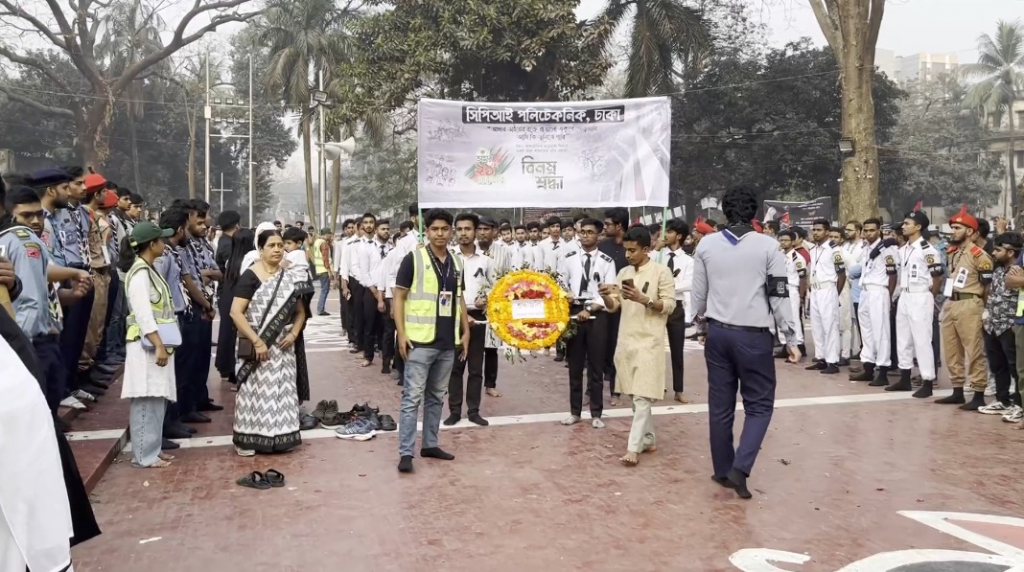Dhaka: Thousands gathered at the Central Shaheed Minar in Dhaka, Bangladesh, to honor those who sacrificed their lives during the historic language movement. The ceremony marked International Mother Language Day, with Bangladesh’s President Mohammed Shahabuddin and Chief Adviser Muhammad Yunus laying wreaths in remembrance.
Participants, including individuals from various backgrounds, walked barefoot to the monument while singing “Amar Bhaiyer Rokte Rangano Ekushey February,” paying their respects to the martyrs. Manindra Kumar Nath, Acting General Secretary of the Bangladesh Hindu Buddhist Christian Unity Council, emphasized the pride in honoring those who fought against Pakistan for their language rights in 1952.
He remarked, “We are moving towards a democratic country in Bangladesh. Now we celebrate International Mother Language Day across the globe,” expressing hopes for a future that is beautifully democratic and secular.
The Bengali Language Movement of 1952 arose as a political protest in East Pakistan (now Bangladesh) advocating for Bengali to be recognized as an official language. On February 21, 1952, students from the University of Dhaka peacefully protested the Pakistani government’s decision to impose Urdu as the sole state language. Tragically, several students were killed when police opened fire during the demonstration.
The names of heroes like Salam, Barkat, Rafiq, and Jabbar remain etched in history as their sacrifice compelled the Pakistani authorities to recognize Bengali as a state language, marking a pivotal moment in Bangladesh’s fight for independence. In 1999, UNESCO declared February 21 as International Mother Language Day, an observance that has been celebrated worldwide since 2000.
